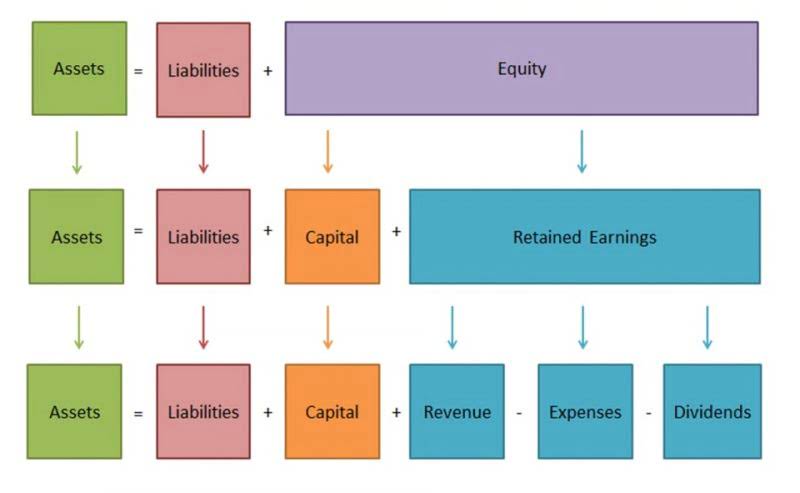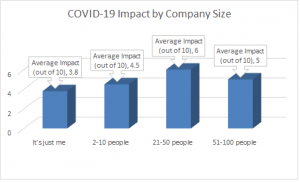Narcissists reveal destructive behavior because of a lack of empathy and genuine emotions. An alcoholic narcissist may view drinking as an added layer of defense against failures or criticism, or self-medication and escape from reality. Personality disorders are characterized by dysfunctional thought processes, behaviors, and overall functioning. Narcissistic alcoholics frequently exploit others to fulfill their own needs and desires 3.
Substance Abuse Treatment Programs
Healthcare professionals and psychologists may use a set of criteria from the Diagnostic and Statistical Manual of Mental Disorders, Fifth Edition (DSM-5) to diagnose narcissism or AUD. Recovery requires taking responsibility for your actions and acknowledging the harm you may have caused others. Taking responsibility for your actions can be an uncomfortable and difficult process, but it is crucial to making amends and moving forward. They may also defend the narcissist’s actions and make excuses for them, even if they are hurtful or abusive.
Similarities and Differences in Behaviors
Research suggests that narcissism is not caused by alcohol, but rather by other factors that occur during the early developmental period. For instance, research has shown that genetic predispositions can place a person at risk of NPD. Childhood rejection or experiences like child abuse and neglect are also linked to NPD 2. In some cases, medication-assisted treatment may be prescribed as part of the overall treatment plan for alcoholic narcissism 4. Prioritize your alcoholic narcissistic mother well-being by engaging in activities that bring you peace and relaxation. Whether it’s meditation, exercise, hobbies, or spending time with loved ones, allocate time for self-care to recharge and maintain your emotional balance.
Is AUD a Mental Illness?
- The combination of alcoholism and narcissism can create a challenging dynamic in relationships, with the individual prioritizing their needs above all else and exhibiting erratic behavior.
- Understanding these dynamics is crucial in addressing the complexities of alcohol use in individuals with narcissistic traits.
- For females, it is not advisable to consume more than one unit of alcohol per day.
- My goal is to empower you with the tools and insights you need to build emotional resilience and healthier relationships.
- A psychiatrist may carry out a standard psychiatric interview, which healthcare professionals use to diagnose personality disorders.
- While not all alcoholics are narcissistic, and not all narcissists are alcoholics, there are some similarities between the two conditions.
Engaging in self-care practices and making positive lifestyle changes can significantly contribute to recovery from alcoholic narcissism 5. This may include adopting a healthier diet, incorporating regular exercise, practicing stress reduction techniques (such as meditation or yoga), and cultivating supportive relationships. Can a person be simultaneously trapped in the relentless grip of alcoholism and the intricate web of narcissism? Welcome to the complex world of bipolar narcissistic alcoholism, where the battle against addiction intertwines with the insidious traits of narcissism. By recognizing these behavioral patterns in an alcoholic narcissist, you can proactively set boundaries, protect your mental well-being, and approach interactions with heightened awareness.
Alcoholism has a lasting impact on children.
In conclusion, it’s important to recognize the destructive combination of covert narcissism and alcoholism. Seeking support from trusted sources can also provide valuable insights and coping strategies. Recognizing the link between narcissism, mental, and physical health is crucial in addressing the root causes of the behavior.
Common signs of an alcoholic narcissist include a steadfast denial of their issues, an inability to engage in self-reflection, and a reluctance to take responsibility for their actions. These individuals exhibit a pronounced sense of entitlement and often engage in self-destructive behaviors that further alienate those around them. Their relationships are typically superficial, characterized by a lack of genuine emotional connection. This combination of traits makes it exceptionally challenging for loved ones to support the alcoholic narcissist’s path to recovery, underscoring the importance of professional intervention. An alcoholic narcissist typically exhibits a dangerous combination of both alcohol misuse and narcissistic personality traits. On the other hand, alcohol use disorder (AUD) involves a persistent inability to stop drinking despite experiencing negative consequences.
The existence of both narcissism and alcoholism can have devastating effects on relationships. Loved ones often find themselves caught in a cycle of manipulation, emotional abuse, and instability. Left unchecked, both narcissism and alcoholism can be detrimental to mental and physical health — along with negatively affecting social circles and family connections. Remember, behind the façade of arrogance and self-absorption lies a fragile soul yearning for genuine connection. Let us extend our support, shatter the stigma, and pave the way for a brighter, healthier future for individuals struggling with alcoholic narcissism. Individuals with alcoholic narcissism may exhibit manipulative tendencies 3.
Remember that setting boundaries is not selfish but necessary for mental health and well-being. 12-step programs like Alcoholics Anonymous provide a structured approach to recovery and ongoing support. The combination of limited empathy and heightened anger creates a volatile environment for relationships.
One study found that among individuals who reported alcohol use, 9.1% were diagnosed with NPD at some point during their lives 1. Understanding narcissism and alcoholism is crucial in dealing with individuals struggling with both conditions. It’s important to recognize the unique challenges posed by the combination of narcissistic personality traits and alcohol addiction. Understanding these behavioral patterns is crucial in addressing the complexities of coexisting alcohol addiction and covert narcissism. By recognizing these signs, individuals can seek appropriate support and interventions to navigate the challenges posed by this dual diagnosis. The associations between covert narcissism and alcohol abuse can result in heightened psychological distress and interpersonal difficulties.
- The need for constant validation and a perceived lack of appreciation can lead to self-destructive behaviors.
- A dual diagnosis (or co-occurring disorder) is when one person has a mental health disorder along with a drug or alcohol abuse problem.
- It is typical for people to display occasional narcissistic traits, but a pattern of narcissism could be part of narcissistic personality disorder (NPD), a mental health condition.
NPD is characterized by a pervasive sense of entitlement, an overwhelming need for admiration, high sensitivity to criticism, grandiosity, lack of empathy, and selfish behavior. Those afflicted often find it challenging to maintain healthy interpersonal relationships due to their manipulative and self-centered actions. Narcissistic personality disorder (NPD) and alcohol use disorder (AUD) share several similarities. Both conditions can lead to self-absorbed behavior, difficulty maintaining healthy relationships, and a tendency to avoid or mask feelings of shame.
Why is communication important in managing relationships with narcissistic alcoholics?
The psychological symptoms are serious enough to classify alcohol addiction as a mental illness. Some mental health conditions are likely to occur together, and when they do, they’re called co-occurring disorders. Alcohol use disorder and narcissism are common co-occurring disorders, and in some cases, the symptoms of the two conditions may present similarly 1. Narcissism and alcoholism are disorders that are separately difficult — but combined may be profoundly challenging. Not only can the significant issues affect the individual but also monumentally affect interpersonal relationships.
It allows patients to attend therapy sessions and receive medical care without residing in a facility. This option offers flexibility and the opportunity to apply new coping strategies in real-world settings. Exploring the emotional chaos brought about by an alcoholic narcissist reveals deep-seated issues that significantly affect relationships. Understanding the multifaceted impact of these intertwined behaviors can be the first step toward healing. Cultural influences and societal attitudes toward alcohol use also shape drinking behaviors. Some research suggests narcissistic traits may increase in prevalence in individualistic societies.
More likelyits shame and simply not knowingthat adult children of alcoholics (ACOAs), as a group, tend to struggle with a particular set of issues. Local community resources, such as counseling services or addiction support centers, offer specialized assistance. These organizations often provide education about narcissism and alcoholism. Support groups like Al-Anon provide a safe space to share experiences and learn from others in similar situations.
Dating Someone With A Personality Disorder: The Specific Challenges Faced By Men
During childhood, you came to believe that you’re fundamentally flawed, and the cause of the family dysfunction. There are so many things that alcoholic families don’t talk about – to each other and especially to the outside world. When there are things so awful that they can’t be talked about, you feel there is something awful about you and that you’ll be judged and cast away.
Alcohol becomes a coping mechanism to temporarily bolster their confidence and alleviate their internal insecurities. Have you ever come across someone who is not only self-absorbed but also struggles with alcohol abuse? This intriguing combination is known as a narcissistic alcoholic, where the traits of narcissistic personality disorder (NPD) intersect with alcoholism. By gaining a deeper understanding of how alcoholism and narcissism intersect, you can better navigate the complexities of dealing with an alcoholic narcissist. In the next section, we’ll explore practical strategies for managing and setting boundaries in such relationships.










